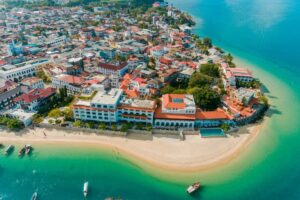“This victory is due to the great changes that we have made in the entire system of providing services to its customers across the country,” DCB’ managing director, Godfrey Ndalahwa said during the event in Dar es Salaam at the weekend.
DCB was established 20 years ago.
“We started this journey four years ago and we are happy to see that our customers have seen the great improvement we have made in the way we serve them,” he said.
He said the bank’s stakeholders consider the award as a motivation to be proactive and innovative in serving its customers better and meet their expectations and to be more than where they are.
This is the second time for DCB to win the award. In 2021, the bank emerged the second winner of the awards.
The awards seek to bring competition among various companies and businesses in Africa by encouraging the provision of quality services and products to customers as well as recognizing excellent service providers.
Share this news
This Year’s Most Read News Stories

Zanzibar Airports Authority enforces Dnata monopoly
. Airlines that have not joined the Zanzibar Airports Authority’s (ZAA) preferred ground handler, Dnata, at the Abeid Amani Karume International Airport (AAKIA) face eviction from the Terminal Three building Dnata is the sole ground handler authorised to provide services for flights that operate at Terminal 3.Continue Reading

Zanzibar tourism investors alarmed by new mandatory insurance fee
Tourism investors in Zanzibar have voiced their concerns over the introduction of mandatory travel insurance, cautioning about its potential negative impact on the industry.Continue Reading

Will Tanzania agree to Starlink Internet Service?
Will the Tanzania government let Starlink, the world-famous internet service provider, operate in the country?Continue Reading











